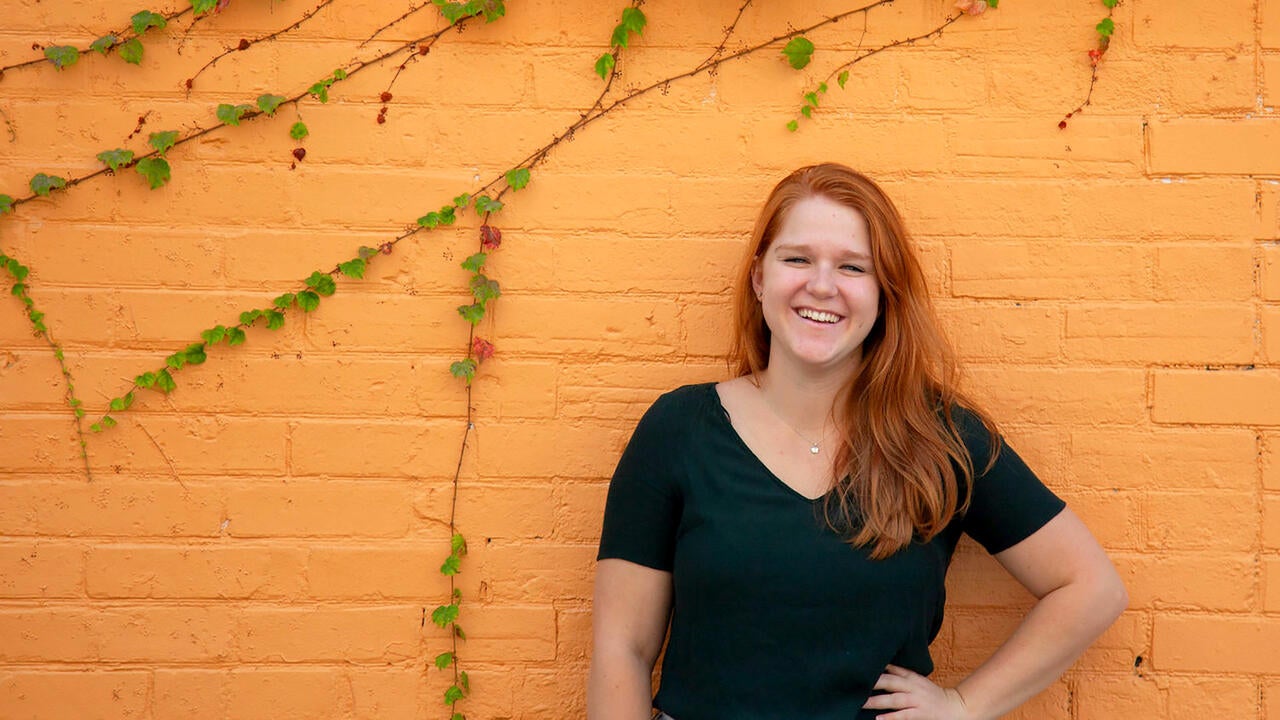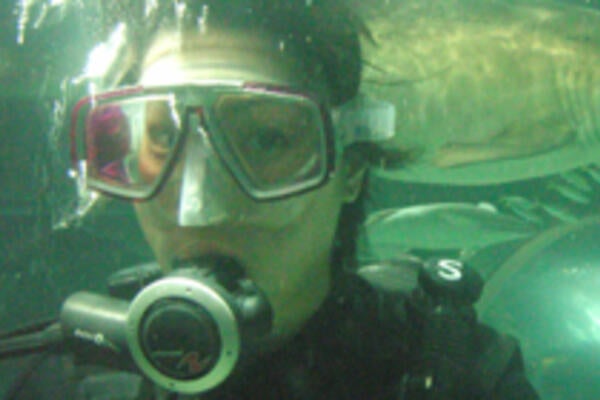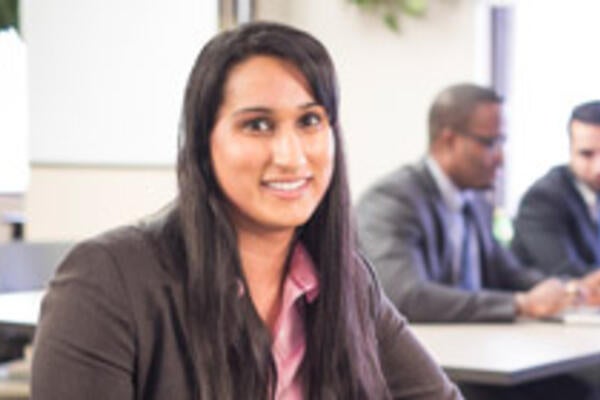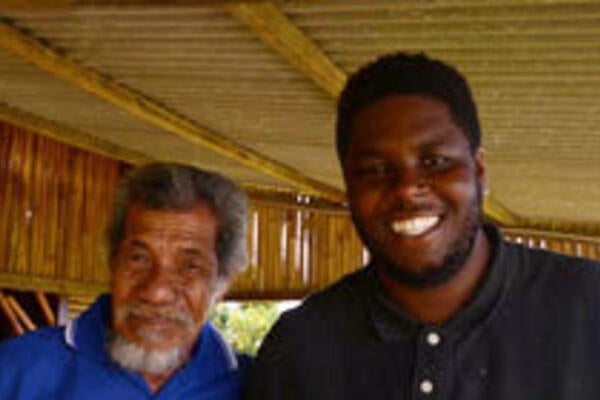
Waterloo student is one of ten global UN Youth Champions
Kirsten Mosey found her purpose by volunteering in a refugee camp and working on a co-op term with Waterloo’s entrepreneurial Centre for Peace Advancement

Kirsten Mosey found her purpose by volunteering in a refugee camp and working on a co-op term with Waterloo’s entrepreneurial Centre for Peace Advancement
By Staff Conrad Grebel University CollegeA Waterloo political science student has been named one of ten Youth Champions for Disarmament by the United Nations. Kirsten Mosey was inspired to work in global affairs after volunteering at a notorious refugee camp on the small Greek island of Lesvos.
The United Nations Office for Disarmament Affairs (UNODA) selected Mosey, the only youth from North America, from 6,500 applications. Following the United Nations resolution on Youth, Peace and Security, the Youth Champions for Disarmament Training Programme is designed to bring 10 passionate young people from around the world together to contribute to global disarmament efforts.
In 2016, while her friends back in Canada were finishing their exams, Mosey was delivering tents, handing out tea and listening to stories of displacement in Camp Moria, a detention centre turned refugee camp that once housed more than 6,000 refugees from across the Middle East and Africa. Most recently, thousands of migrants in Camp Moria have been left homeless following fires that destroyed Europe’s largest camp.
When Mosey returned to Canada she enrolled in political science at the University of Waterloo and eventually worked as a co-op student for the University’s Centre for Peace Advancement, based at Conrad Grebel University College. Working alongside start-ups such as Lunaria, Demine Robotics and sharing office space with well-established organizations like Project Ploughshares and the Tamarack Institute, Mosey’s energy for changemaking was renewed.
Co-op term inspired deeper engagement with global affairs
During Mosey’s first co-op term with the Kindred Credit Union Centre for Peace Advancement, she became familiar with social innovation. Her understanding of peacebuilding as a narrow avenue for change was dismantled as she learned of folks using coding, geomatics, and conflict resolution tools to make significant impacts on communities around the world. Not only was Mosey witnessing peacebuilding in action, she was also encouraged to pursue her passions and share them with the community.
As Mosey detailed her experiences working with refugees, she was challenged to use tools to open up her understanding and pursue meaningful change. Through concepts such as systems mapping and Thinking and Working Politically, she gained an understanding of problem scopes and how to identify root causes to global challenges. A guest lecture in Professor Marlene Epp’s Canadian Immigration History course, encouraged her to question traditional ideas of refugee resettlement and reimagine Canada’s refugee policies. Leading tours for the Drone Dialogues exhibit in the Grebel Gallery, which saw near life-size re-creations of killer drones on the wall mere feet from her desk, provided Mosey with an opportunity to reflect on the impact of technology on humanity. Witnessing the comings and goings of peace practitioners from Project Ploughshares reminded her of the vast opportunities for peacebuilding.
As Kofi Annan, former Secretary-General of the United Nations, once said, “Education is, quite simply, peacebuilding by another name.” Mosey learned that her ideas were valued and vital to solving the existential threats to her generation, and she began to view her peacebuilding and activism as inextricably linked to her educational experience.
Mosey hopes to encourage a stronger discussion on disarmament and refugees, both locally and globally. Inspired by ongoing conversations about responsible innovation and technology, as well Waterloo Region’s reputation as a hub for both innovation and refugee resettlement, she is eager to represent Canada and the University of Waterloo as she advocates for disarmament policy that saves lives.

Read more
As a co-operative education leader, Waterloo offers students the opportunity to enhance their education while developing international connections and experience.

Read more
Master of Public Service: Waterloo’s largest co-op education program for graduate students gives alumni an edge when competing for jobs at all levels of government

Read more
Ryan Haughton is a natural resource governance and innovation consultant
The University of Waterloo acknowledges that much of our work takes place on the traditional territory of the Neutral, Anishinaabeg, and Haudenosaunee peoples. Our main campus is situated on the Haldimand Tract, the land granted to the Six Nations that includes six miles on each side of the Grand River. Our active work toward reconciliation takes place across our campuses through research, learning, teaching, and community building, and is co-ordinated within the Office of Indigenous Relations.